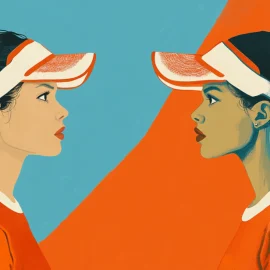

This article is an excerpt from the Shortform book guide to "From Strength to Strength" by Arthur C. Brooks. Shortform has the world's best summaries and analyses of books you should be reading.
Like this article? Sign up for a free trial here.
At what stage are you in your career? Does it feel like you’re slowing down while the work—and your colleagues—are racing ahead?
Supermodels and professional athletes aren’t the only ones whose professional attributes carry an expiration date. That’s the view of management expert Arthur Brooks, the author of From Strength to Strength. He presents the problem of professional decline and shares strategies to pivot and flourish as you get older.
Read more to gain an understanding of career decline as it very well could relate to your life.
The Problem of Career Decline
Brooks begins by saying that, for people working in practically any skilled job, career decline sets in sometime between their late 30s and early 50s. This means that they start losing their job skills—they can’t think as quickly, and solving problems becomes more difficult. Further, if the job is physically demanding, they find themselves becoming physically weaker and more prone to injury.
For example, statistically speaking, scientists and inventors are most likely to make significant breakthroughs before age 40; doing so after age 70 is practically unheard of. Creative professionals like authors and artists tend to succeed for a bit longer, but they still most commonly win awards in their 40s or 50s and then experience sharp declines in their later years.
This decline happens in large part because the prefrontal cortex—the part of the brain that controls higher-order thought processes like reasoning and creativity—starts to shrink around this time. You can’t prevent this from happening, no matter how well you take care of yourself; you also can’t overcome its effects, no matter how hard you work.
| Counterpoint: Professional and Cognitive Declines Aren’t Certain Brooks backs up his claim with significant evidence, ranging from statistics about who won awards and when to biological facts about how the brain ages. That said, he appears to be the sole major proponent of this theory of professional decline—for instance, a Google search for “professional decline” mostly turns up articles by Brooks himself or people quoting him. On the other hand, there are many stories of people who began highly successful careers when, according to Brooks, they should have already been well into this decline. Further, one group of researchers found that physicists don’t peak in their 20s or 30s, as is commonly believed, but rather at 48 years old. And, at least one study shows that cognitive decline doesn’t affect everyone; some people can go their entire lives without losing their creativity and drive. Nonetheless, it may still be valuable to make plans for your later years in case you do experience such a career decline. In fact, “recareering”—changing professions in your 40s or later—has become very common, while holding a single job for your entire life is rare. |
Brooks offers some encouragement, and that’s why he wrote his book. Despite this career decline, with the right mindset, the second half of your life can be even happier and more meaningful than the first. If you find a job that suits your changing skill set, and if you change your idea of “success” from career achievement and material wealth to happiness and fulfillment, you can continue to thrive.
| Radical Acceptance of Your Professional Decline Changing your mindset about losing your skills is much easier said than done. A large part of making that shift is being able to accept what’s happening to you rather than trying to fight it or deny that it’s happening. In Radical Acceptance, Tara Brach provides a strategy derived from Buddhist teachings that can help you accept difficult things, such as the decline of your fluid intelligence. This strategy first involves asking yourself friendly questions about what you’re experiencing. You’re seeking only to understand, not to judge, those experiences; Brach suggests imagining that you’re talking to a good friend, someone whom you’d listen to without berating or offering unwanted advice. So, if you find yourself struggling with a task that used to come easily to you, you might ask yourself what you’re feeling at the moment—frustration, embarrassment, or confusion might be common answers in this situation. You could also ask yourself why you’re having trouble; perhaps because you’re struggling to come up with a solution to some problem you’ve encountered or because you’re finding it difficult to stay focused. Once you understand what you’re experiencing at that moment, the second aspect of radical acceptance is compassion: feeling love and care for yourself and what you’re experiencing. In other words, don’t criticize yourself for your declining skills or rage against the aging process. Again, you could imagine that you’re talking to a good friend and hold yourself with the same care and sympathy you’d extend to that other person. Only after you’ve achieved understanding and compassion can you start to truly accept your situation. The secret of this technique is to not make an enemy where no enemy exists. The decline of your professional skills isn’t something to be fought: It’s simply your reality at that moment. By accepting and embracing your reality for what it is—rather than trying to force reality to be what you want it to be—you leave yourself free to do as Brooks suggests: look for ways to make the most of the abilities you do have. |

———End of Preview———
Like what you just read? Read the rest of the world's best book summary and analysis of Arthur C. Brooks's "From Strength to Strength" at Shortform.
Here's what you'll find in our full From Strength to Strength summary:
- Why our professional skills start to decline as we get older
- How second half of your life can be even happier than the first
- How to find a new career path that suits your changing skill set






